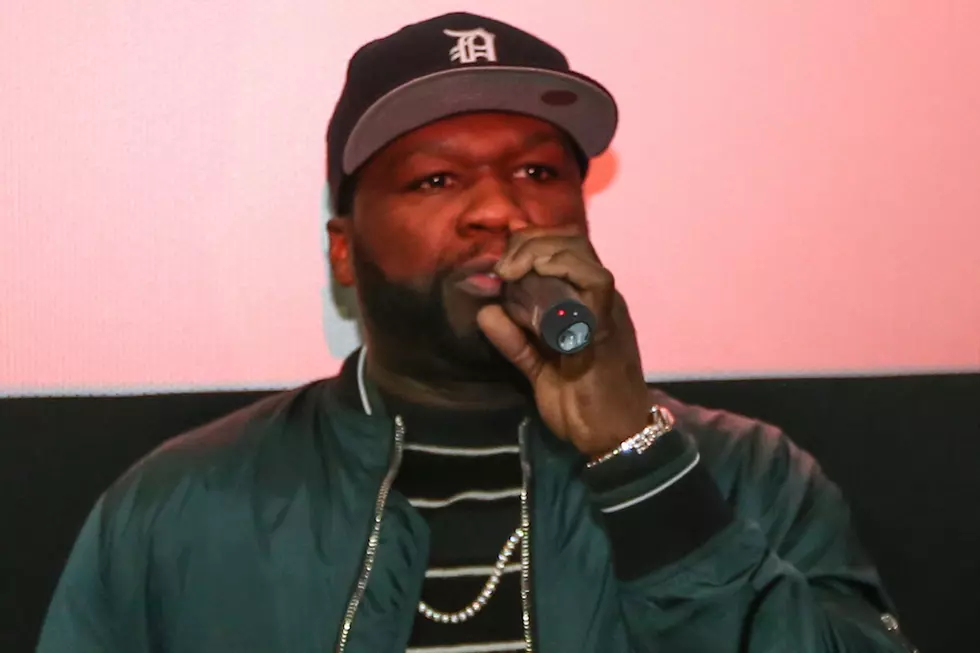
Saigon, Hip Hop On A Higher Level | XXLMAG.COM
The NY rapper's career could have been different but that's how life is. Looking back and to the future though I think the deeper path is the less taken but more satisfying road.
One night in the fall of 2009, Saigon sat in his upstate New York home and contemplated wrecking what was left of his once-promising career. He was supposed to be the next great New York MC. After all, his best work fused Nas’s socially conscious rhymes with the brash street credibility of 50 Cent. He had an A-list producer by his side (Just Blaze), a big-time management team (The Firm, and later Violator), a recurring role on a hit TV series where he played himself (HBO’s Entourage), and was signed to a major label (Atlantic Records). But that didn’t stop Saigon’s debut album, The Greatest Story Never Told, from being shelved at Atlantic since 2005. Didn’t matter that the few who’d heard the album said it was incredible. More than likely, it wasn’t going to be released. On that fall night in 2009, Saigon was going to change that.
He uploaded the final version of The Greatest Story Never Told to the popular file-sharing site sendspace.com. He then thought about Just Blaze and immediately took down the link, never making it available for download. “I just felt like it would be the ultimate disrespect to [him],” Saigon says. Soon a wave of positive energy washed over him. “In the back of my mind, I knew I was going to be able to get this album out,” he says. “This album has become a black cloud over my head. I talked about it for so long and so much that muthafuckas want to hear it, so it’s only right that I give it to them.” The beleaguered MC is now signed to the indie label Suburban Noize, and The Greatest Story Never Told has a first-quarter-2011 release date. Yes, Saigon’s story will finally be told.
On this frigid night in December, Sai, 32, lounges comfortably in an East Harlem studio. He is wearing a bulky Eskimo hat and gray thermal shirt. He is excited that fans will soon hear TGSNT. More importantly, he is resigned with the path his career has taken and admits his mistakes.
Saigon’s long slog in the industry, from the mixtape circuit, to Atlantic, to Suburban Noize, began in 2002, soon after 50 Cent signed to Interscope/Aftermath/Shady. Major labels immediately sniffed around for rappers with street credibility and mixtape chops to match. Saigon fit the bill, and even nearly signed with G-Unit. “I wanted to be the conscious arm of G-Unit,” Sai says. A snide text message, however, ruined the relationship with 50 Cent. “It was kind of my fault. I hit [50] four times, and he ain’t text me. I then said something about him feeling himself. He was like, ‘Who the fuck you think you is, nigga?’ But it was all in fun to me. I was trying to see if he was ignoring me.”
Sai-Giddy didn’t wind up a G-Unit soldier, but he still shared a similar hard-knock background. Born Brian Carenard, Saigon bounced between his aunt’s home in Brooklyn and his grandmother’s home upstate while growing up. His birth parents weren’t around. “[My mother] was messed up,” he says. “I’d rather not talk about that, because she is dead now, and out of respect for her. My dad? I never rocked with him.” Saigon was sent to reform school for fighting when he was 13 years old. At age 16, he was convicted of first-degree assault, for shooting two men, and was sentenced to six years in prison. Inside, he devoted himself to rapping, and upon his release, in 2000, Sai hit the fledgling mixtape scene. But instead of exploiting his criminal past, the budding lyricist often told a more cautionary tale. “There are artists that never been to jail and glorify jail, and they’re winning,” he says. “And I’m sitting here telling these young brothers that jail isn’t the place to be, and they don’t wanna hear that shit.”
More From KISS FM









